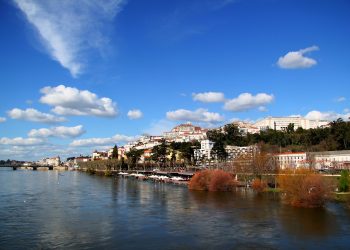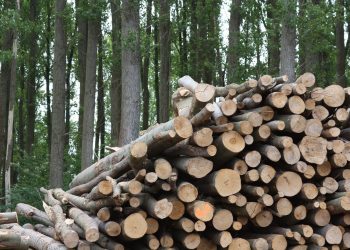INTRODUCTION
The purpose of this paper is to identify the key issues in the post-Brexit EU-UK trade relations, as a preliminary step to shape discussions with the Commission and other decision-makers and stakeholders.
In previous papers Farm Europe dwelt at large on the possible alternative scenarios for Brexit. It raised the attention of its Members and other stakeholders to the magnitude of the impact that either a “hard Brexit” or a Free Trade Agreement (FTA) would have in the EU agri-food sector.
The fundamentals have not changed, insofar as the EU27 enjoys a hefty trade surplus with the UK, and in any scenario other than the UK staying in the Customs Union this trade surplus and the trade flows will be negatively impacted.
What has changed is the level of uncertainty, as now two key elements are either known or very likely to materialize. Brexit is now a given, the UK has left the EU in the end of January. The UK is also set to leave the Customs Union, as announced by its Government, by the end of the transitional period that is supposed to expire in the end of this year.
Where does that leave the prospects for the future trade relations?
Two options are still open: a no-deal scenario (hard Brexit) in the event negotiations fail and there is no agreement on extending the transitional period; and a FTA, which could be more or less deep and large on coverage.
Even if the no-deal scenario is a possibility that should not be excluded, it seems less likely than agreeing on a FTA, as both sides would lose big and would be seen as a monumental political failure.
This paper thus focus on the FTA scenario, the more likely. The aim is to identify what are the major concerns of the agri-food sector for the negotiations, as a basis for fruitful discussions with decision-makers and other interested parties.
a lot is being said on timing and level playing field…
A lot has been said on the fact that less than one year to negotiate a FTA is close to impossible. But it has been also added that the EU and the UK could negotiate by stages, with the objective of getting to agreement quickly where that is feasible, and leaving for later stages more difficult issues. The Commission draft negotiation mandate explicitly foresees this possibility.
It should not be forgotten that the UK was a Member of the EU, thus fully aligned with its rules and standards. It should be relatively easy to expeditiously conclude the agri-food chapter of the FTA. However the UK might gradually diverge from the EU current set of rules and standards. In the agricultural sector the UK might for instance quickly depart from the current EU restrictions on NBTs, or not follow the EU in restricting the use of pesticides. The problem for the EU would thus be a decrease of competitiveness vis-à-vis the UK if it adopts or maintains restrictions to farming, e.g. for environmental reasons in the context of the Green Deal, and those restrictions are not equally pursued in the UK.
The areas of divergence might build-up with time, as the UK will independently set its course. But that should not be a major impediment to agreeing on respecting each market set of rules and standards, or even negotiate equivalency agreements, as the EU has done in other FTAs. The UK exports would have to abide by our norms and vice-versa. The cost at the beginning would be limited as the set is similar, although it might increase over time.
Both the EU and the EU will have to face newborn costs to its bilateral trade, stemming from customs and regulatory controls. Whilst it is in the interest of the EU that the integrity of its single market is preserved, it is also in its interest that those controls are based on proper risk assessment and as expeditious as possible to keep on check additional costs on its exports to the UK. Having said that, for the FTA to enter into force it would have to cover all economic sectors. Speaking of trade in goods that should not pose a problem as for the whole goods sectors the integration of both markets is very strong. However, the negotiation on services, and in particular on financial services, can make the whole FTA negotiation more complex and difficult.
On timing, a first point to make would thus be that on the agri-food sector it is feasible and desirable to conclude a FTA in the shortest possible period of time – by year’s end might be tight but not impossible.
What should be avoided at all costs is to bundle all the issues of the post-Brexit relationship together and agree on nothing till everything is agreed. That would most likely demand an extension of the transitional period, which would run into political difficulties, and increase the probability of a hard-Brexit. The consequences of a hard-Brexit have been examined in previous papers, it would lead to a dramatic crisis in many EU agri-food sectors, and should thus be avoided as the worst possible outcome.
even with a FTA the EU will be worse-off…
It is worth recalling what we have written on the event of a FTA post-Brexit for the latest GFF:
“…the UK will be free to adopt free trade agreements with the likes of the US, Australia, New Zealand, Mercosur, with the clear result that the competition for agri-food products in the UK market would dramatically change against our interests, and that the EU market could to a certain extent be open to trade diversion and cheaper products imported into the UK. That might not be a big problem for other economic sectors that have low or no tariff protection, but would definitely be a big problem for the agri-food sector as the UK market would no longer be shielded from outside competition in key sectors (meats, dairy, sugar) by the EU common customs tariffs, nor would it be obliged to enforce the high EU standards and norms if the UK would so decide.
Let us not forget that 60% of the agriculture and food products consumed in the UK are imported, and nearly 75% of these are coming from the EU.
The EU27 exports over €38 billion worth of agri-food products to the UK, and imports only €16 billion, enjoying a high trade surplus of €22 billion.”
In this context let’s not forget that the UK had already prepared for the event of Brexit before it concludes its own set of FTAs with the rest of the world, by envisaging a unilateral drop of its WTO tariffs for a wide range of products. That would bring in swift and wide competition with our exports from the very end of the transitional period.
The FTA with the UK should bring a zero-tariff, zero-quota, across the board free trade, which is the framework that brings us closer to the current situation. It would be the framework that would most mitigate our losses.
The losses that we’ll face depend on the trade deals the UK will strike and on our ability to improve our competitiveness, or at least not compromise it with additional layers of restrictive measures. But it is inevitable that they will occur, all the more in strategic sectors like meat, dairy and sugar.
the EU should however block trade diversion…
Whilst there is little the EU can do to determine the extent of renewed competition it will face in the UK market, the EU can and should in the negotiation of the FTA prevent trade diversion, i.e. that the UK be used as a platform to export to the EU products originating in other countries.
A strict set of rules of origin should be an integral part of the FTA. Wines benefiting from the FTA conditions should be wholly obtained, not only bottled, in the UK. Meat and dairy products should respect the same strict rules of origin, as should sugar and biofuels. Otherwise we would have a situation where e.g. Brazilian sugar and ethanol produced from molasses would find its way to the EU market with no tariffs. By the same token we should not be prepared to accept biodiesel produced in the UK from palm oil imported from South-East Asia.
For the likes of the sugar, meat and starch sectors the EU should go further and prevent the UK from “swapping” its production for cheaper imports from third countries – and exporting the bulk of UK produce to the EU. This triangular trade could create havoc in the EU markets. A net-export safeguard clause should be included in the FTA for a range of highly sensitive products, to be triggered when the UK exports to the EU more than the net balance of its production over domestic consumption.
It should be added that the EU will already have to import more from third-countries in the context of existing FTAs and other bilateral agreements, following the exit of the UK, if it cannot renegotiate the volumes of preferential import negotiated when the UK was a Member. The UK share of the preferential imports will vanish but the agreed quantities would stay.
CONCLUSION
To conclude, the EU agri-food sector requests for the upcoming EU-UK negotiations on the future relationship should be the following:
- Whilst it has no illusions that the sector will be worse-off than today, as it will most likely face increased competition from other countries in the UK market, the best mitigating outcome is an across the board tariff and quota free FTA;
- The conclusion of a FTA should not be kept hostage of other more difficult issues, which would increase the risk of a hard-Brexit
- A strict set of rules of origin and safeguard clauses should be agreed to prevent trade diversion using the UK as platform for other countries’ exports to the EU.





















































Discussão sobre este post